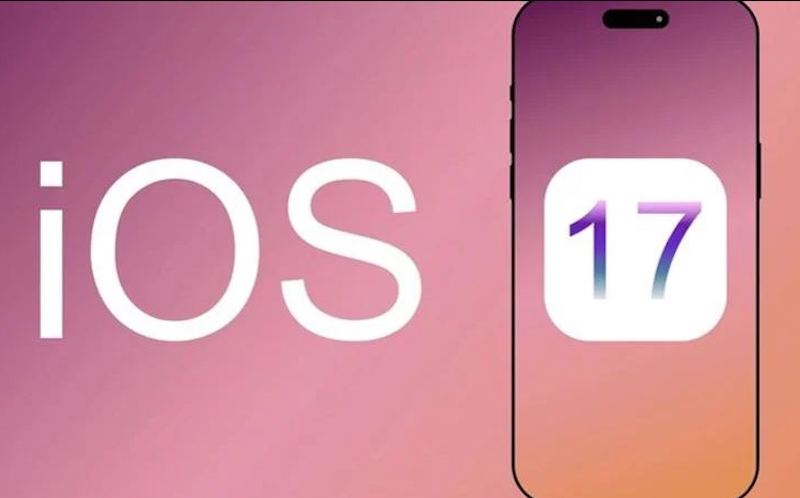
iOS 17 could be the end for your old iPhone
Share
If you've been keeping up with the latest Apple news then you'll have heard about the new iOS 17 set to hit most iPhone models next month. But when exactly is the iOS 17 release date and how will it affect each iPhone model? Here's everything you need to know about the iOS 17 update, including iOS 17 supported devices and iOS 17 unsupported devices!
When is the iOS 17 release date?
While we know that the iOS 17 update is coming, we don't have a release date just yet. Like the new iPhone release, Apple is keeping their official iOS 17 release date quiet, but think we can whittle down a list of potential release dates based on their past habits.
Apple tends to roll out new major iOS updates in September to go alongside their new iPhone series. In fact, Apple hasn't released an iOS update outside of September since 2011, so we think it's pretty safe to assume that the iOS 17 release will be in September.
Here are Apple's previous iOS release dates:
- iOS 16: Monday, September 12, 2022
- iOS 15: Monday, September 20, 2021
- iOS 14: Wednesday, September 16, 2020
- iOS 13: Thursday, September 19, 2019
- iOS 12: Monday, September 17, 2018
Based on these previous release dates and the rumoured iPhone 15 launch dates, we could see the iOS 17 launched on Monday the 11th of September or Monday the 18th of September.
If you're eager to get your hands on the update now, there is a beta version available to download and test now ahead of the official launch.
What phones support iOS 17?
Usually, iPhone models get five years of software updates so if your iPhone is under five years old you shouldn't have to worry about not getting the iOS 17 update. Here are all the iOS 17 supported devices:
- iPhone 14
- iPhone 14 Plus
- iPhone 14 Pro
- iPhone 14 Pro Max
- iPhone 13
- iPhone 13 mini
- iPhone 13 Pro
- iPhone 13 Pro Max
- iPhone 12
- iPhone 12 mini
- iPhone 12 Pro
- iPhone 12 Pro Max
- iPhone 11
- iPhone 11 Pro
- iPhone 11 Pro Max
- iPhone XS
- iPhone XS Max
- iPhone XR
- iPhone SE (2nd generation or later)
However, not all iPhone models younger than five years old will benefit from all of the new features that iOS 17 offers. Certain iOS 17 features need newer chips or sensors to work and so will be compatible with a select few models. Here are all the new iOS 17 features and which iPhone models they will work on:
- StandBy Mode – all iOS 17 compatible models, however you'll need the iPhone 14 Pro or Pro Max to use it with an Always On display.
- Autocorrect update – iPhone 12 or later.
- Keyboard prediction – iPhone 12 or later.
- Siri command update – all iOS 17 compatible models.
- Siri back-to-back requests – iPhone XS, XR and later.
- Facetime live reactions – iPhone 12 or later.
- Magnifier – iPhone 12 Pro and later Pro/Pro Max models.
- NameDrop – all iOS 17 compatible models.
What phones don't support iOS 17?
If you don't see your phone on the list of supported devices, then unfortunately you won't be able to upgrade to iOS 17. You'll still be able to use older iOS versions on your device though, so it's not the end of the world! Here are all the iOS 17 unsupported devices:
- iPhone X
- iPhone 8
- iPhone 8 Plus
- iPhone 7
- iPhone 7 Plus
- iPhone SE (1st Generation)
Will my phone still get security updates and bug fixes?
Is your iPhone on the list of iOS 17 unsupported devices? Don't worry, this doesn't mean your iPhone won't work! Some of Apple's older iPhone models still get security updates and bug fixes, so they're perfectly safe to carry on using.
However, there are a few iPhone models that Apple no longer produces security updates or bug fixes. Here's a list of all the models no longer receiving security or bug fixes:
- iPhone 6s
- iPhone 6s Plus
- iPhone 5S
- iPhone 5C
- iPhone 5
- iPhone 4S
- iPhone 4
If you own any of these devices, you should look at upgrading your device as your phone is no longer secure.
Post by Nicole Newton.


